- Details
- Written by Central Bureau of Statistics
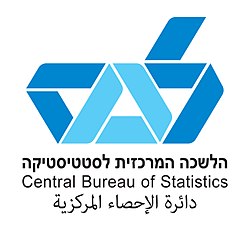
Israel’s Independence Day 2019
Data from 2018 (unless stated otherwise)
Population
- On the eve of Israel's 71st Independence Day, the population of Israel numbered 9.021 million[1]
- At the time of the establishment of the State of Israel, the population of Israel was 806,000 residents.
- On the 100th Independence Day of the State of Israel in 2048 the population of the state is expected to reach 15.2 million.[4]
- Since last year’s Independence Day,[5] Israel's population has grown by 177,000 (an increase of 2%). During that period, 188,000 babies were born, 31,000 immigrants arrived, and 47,000 died.[6]
- Since the State’s founding, 3.2 million immigrants have arrived in Israel, about 43% of them arrived after 1990.
- 45% of the world's Jewish population lives in Israel.
- 48,000 persons aged 90 and over live in Israel.
- 75% of the Jews are Sabras (born in Israel).
Geography
- Area of the State: 22,072 square kilometers
- Sea area (Sea of Galilee and Dead Sea): 2.0%
- Number of localities in Israel: 1,217 (based on population estimates for 2017)
Health
- Life expectancy (in 2017): Men - 80.7
Women - 84.6
- Total fertility rate[7] (in 2017): 3.11
Education
- Number of institutions of higher education: 62
- Percentage of those entitled to a matriculation certificate from those who took the exam: 75.6% (in 2017)
Standard of Living
- Average monthly money income per household: NIS 16,518 in 2017, a real increase of 4.6% compared with 2016
- Average monthly money expenditure per household: NIS 13,114 in 2017, a real increase of 2.2% compared with 2016
- 9% are satisfied with life (in 2018).
Work and Wages
- Average wages per employee job: NIS 10,473
- Unemployment rate: 4.0%
- The share of employed persons in high-tech out of all employed persons in Israel: 8.3% (in 2016)
Business and Manufacturing
- Number of active businesses: 583,000, about half of them (51%) do not employ workers (in 2017)
- Number of manufacturing establishments: 21,000 (in 2017)
- Number of jobs in manufacturing industries: 363,000 (in 2017)
Economic Indicators
- GDP per capita, at constant prices, increased by 1.3% in 2018, compared with 2017.
- An increase of 0.8% in the Consumer Price Index (in 2018)
Tourism
- 4 million visitors to Israel
- 5 million departures abroad
Transportation
- Percentage of households owning at least one car: 71.9% (in 2017)
- Number of vehicles: 3,495,412
- Number of persons licensed to drive: 4,358,402
- Length of paved roads (km): 19,555 (in 2017)
Construction, Housing, and Real Estate
- Percentage of ownership of dwellings by households: 66.5% (in 2017)
Sport
- 179 medals in the Olympics, Non-Olympics, and Paralympics (athletes with disabilities) (in 2017)
[1] The data in this Media Release are preliminary, and do not include the foreign worker population, which is estimated at approximately about 166,000.
[2] Arabs: Muslims (including Circassians), Arab Christians (including Armenians) and Druze.
[3] Others: Non-Arab Christians, other religions, and those registered as not classified by religion in the Population Registry, usually immigrants who immigrated under the Law of Return or family unification, but are not defined as Jews in the Population Registry.
[4] According to the national population projection for 2015-2065, medium variant.
[5] Due to differences in the Hebrew calendar, the data relate to the approximately 12.5 months that passed from the previous Independence Day.
[6] Additional growth components: family reunification, international migration balance.
[7] The number of children to which a woman is expected to give birth during her lifetime.
- Details
- Written by Silvia
This year's closing ceremony for the Holocaust Memorial Day will mark the 70th anniversary of the foundation of 'Kibbutz Lohamei HaGeta'ot' and the Ghetto Fighters' House – The world's first Holocaust Museum and the first one built by Holocaust survivors. Nathan Goshen will perform at the ceremony in front of the Commander of the Northern Command, Major General Amir Baram and many others.
Thursday, 2.5.2019 | 19:30 | Ghetto Fighters' House
Free Entrance
The Holocaust Memorial Day at the Ghetto Fighters' House will take place at the Museum's open Amphitheatre and will mark the 70th anniversary of the Museum and Kibbutz' founding.
During the Holocaust Memorial Day, Thursday 2.5, the Ghetto Fighters' House museum and the children's memorial museum "Yad LaYeled" will be open free of charge to the general public.
Shlomo Richard Almog
Born in Tunisia. In November 1942, the Germans and Italians invaded North Africa where many Jews were subsequently sent to forced-labor camps.
Avery Fisher
In 1944, with Germany's final invasion of Slovenia, the family had to separate and Avery was concealed behind a fake identity and hidden with a Catholic family. Avery will light the torch in memory of his aunt Gizi Fleishman, who headed the "Labor Group" which operated in secret against the Slovakian government, to stop the Slovakian Jews "deportation of death" to Poland. However, in 1944 Gizi Fleishman and most of the Slovakian Jews were sent to the Auschwitz's gas chambers. Today, Avery lives in Kfar Masaryk.
Wolf & Shlomo Galperin
The leaders of the "131 Kovno Children" group, gave hope to 131 children who began their difficult journey in the Kovno ghetto, which ended for those who succeeded in surviving the war, in the Birkenau camp. Thanks to Wolf's leadership, the children of the Kovno ghetto received his authority. Together with his brother Shlomo, the "131 children from the Kovno ghetto" formed, of whom 40 were saved. 25 of them succeeded in immigrating to Israel. Wolf lives in Sderot and Shlomo lives in the north of the country.
Esther Cohen
She was born in 1926 in Hungary to a family of nine. Upon the German invasion in 1944, Esther was sent to a labor camp. Her father and older brother were sent to a forced labor camp and she never saw them again. The mother and the three sisters were sent to Auschwitz, while Esther rolled from camp to camp. Six weeks before the end of the war, she was sent to the death camp at Mauthausen. Esther was saved, she returned to her home and found that her sisters had survived, but both parents and the older brother had perished. Esther immigrated to Israel in 1950 to Kibbutz Matzuva, married and has two sons, three granddaughters, and a great-grandchild.
Shimon Almog Huter
An orphan with no family or memories of them, without a clear past and with a thrilling survival story, filled with turbulence in Europe and in Israel. Shimon does not remember how and at what age he was brought to the Catholic family in the town of Zabrze, Poland, which hid him until the end of the war. After his appearance in the program "Lost Identity" with the late Manny Pe'er, a researcher on behalf of the program went to Poland to search for his birth certificate, which was found in the hospital near Zabrze, but could not find any information about his family. Shimon lives in Kibbutz Evron, he proud to be a father and a grandfather in the land of Israel.
Prof. Yoram Harpaz
Son of Holocaust survivors – the late Tzipora and Uzi Harpaz. A former journalist, writer, and educator. He devoted one of his books to the children of the second generation of Holocaust survivors, "Ma'ayan Children." Uzi and Tzipora managed to survive and immigrate to Israel. They met at 'Kibbutz Lohamei HaGeta'ot' and were among its founders.
- Details
- Written by Silvia G Golan
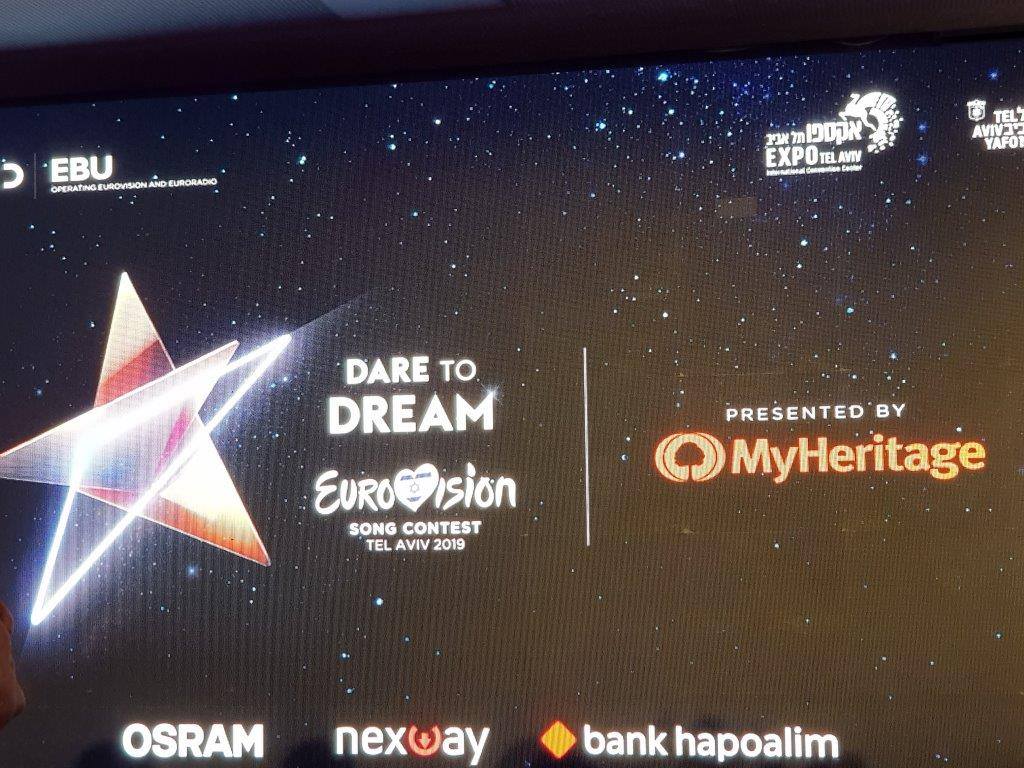
29 Days ‘til Eurovision KAN, the Israeli Public Broadcasting Corporation: This is How Eurovision 2019 Will Look
The second wave of ticket sales will begin tomorrow, Tuesday, April 16 at 18:00 Israel Local Time on the Leaan website
At the official press conference held this morning, April 15th, the Eurovision Song Contest 2019’s official events were presented including the Orange Carpet event which will be held at Habima Square overlooked by Israel’s historic Habima Theater in Tel Aviv on May 12th. Other announcements included the release of another wave of tickets which will go on sale tomorrow (April 16) at 18:00 Israel Local Time.
Zivit Davidovitch, KAN’s Executive Producer of the Eurovision Song Contest 2019 said, “The Eurovision Song Contest is not what we knew 20 years ago and certainly not 40 years ago. In 1999, there were only 23 participating countries and this year 41 countries will participate. As people across the globe look to Israel as the 2019 Eurovision hosts, we want to present Israel in the best way we can. The Israeli team working on the Eurovision Song Contest is of the most experienced, both in terms of production and creativity. The Israeli Eurovision team are working on the project with the deep aspiration and mission to represent Israel and to produce the best Eurovision Song Contest in the 64 years of the competition’s existence”.
At the press conference, many of the Eurovision interval acts were announced. The interval acts will play a central role at each of the three performances of the Eurovision Song Contest. Yuval Cohen, TV and Show Producer, Deputy Executive Producer Eurovision Song Contest 2019 said, "After twenty years we are excited to host the world's largest music competition, in which 41 unique songs from different countries around the world will take center stage. A great deal of thought was invested in developing the line-up of the performances, with the aim of relating to the 200 million viewers watching across the globe and in the same breath bringing an Israeli experience to the screen".
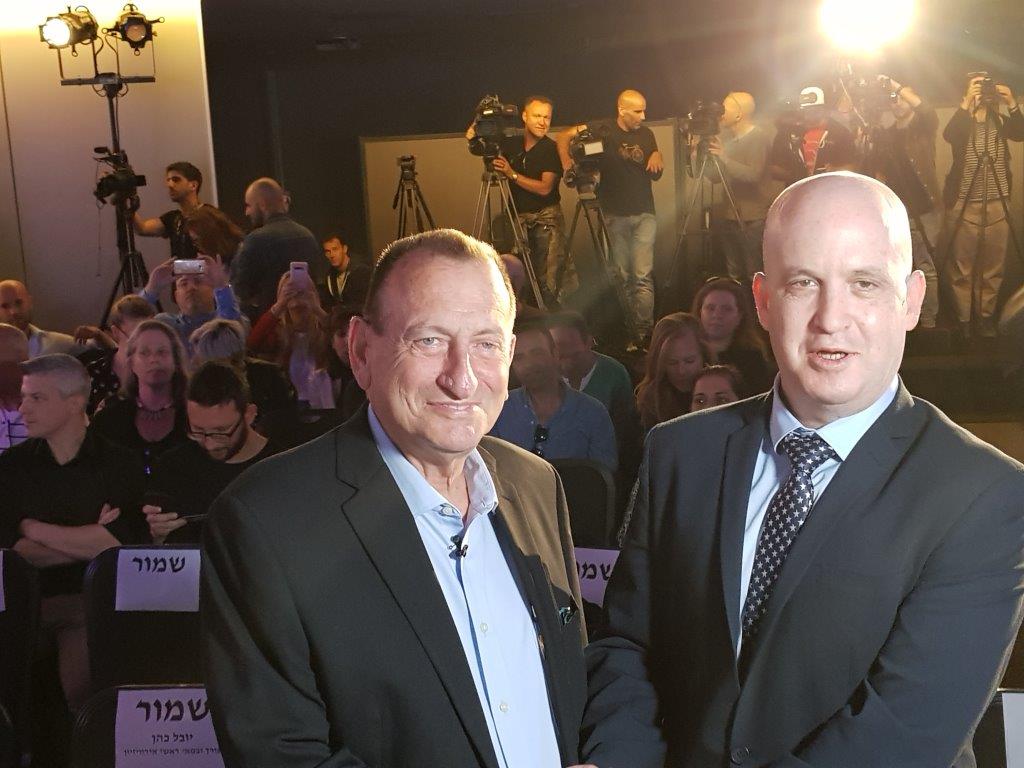
The First Semi-Final will take place on May 14th, the Second Semi-Final will take place on May 16th and the Final will be held on May 18th, under the direction of the four Israeli Eurovision Hosts: Erez Tal, Bar Refaeli, Assi Azar, and Lucy Ayoub. For the first time, the final broadcast in Israel will begin at 21:40 with a special broadcast developed by Yardena Arazi, 40 years after she co-hosted the first Eurovision Song Contest held in Jerusalem on March 31st, 1979.
Announcing the Eurovision Interval Acts and the Artistic Programme
- The 41 Eurovision Postcards - the artists representing each country flew to Israel to 'Dare to Dance' each in a different location in Israel.
- The Idan Raichel Project will perform the song "Bo’ee – Come to Me" accompanied by 24 singers.
- A glimpse of the multi-media video artist Kutiman, has redesigned the Eurovision Song-track.
- Israel's very own Wonder Woman, Gal Gadot, will show Tel Aviv and Israel as never before.
- Shalva Band who taught us all a lesson in the power of a dream and the courage to realize it, will perform.
- Past participants from various participating countries will also perform at the Eurovision Song Contest 2019 including, Conchita Wurst, Eleni Foureira, Verka Serduchka, Måns Zelmerlöw, and Gali Atari winner of the Eurovision Song Contest 1979.
- Winner of the 1998 Eurovision Song Contest, Dana International will also receive due respect and recognition and will appear in the Semi-Finals and Final.
- Izhar Cohen, the first Israeli to bring the Eurovision Song Contest to Israel will give the score of the Israeli judging team (and will close all the judges' votes).
- Winner of the 1998 Eurovision Song Contest, Dana International will also receive due respect and recognition and will appear in the Semi-Finals and Final.
- And of course, we will also have Netta Barzilai, who a year ago, in Lisbon, fulfilled her personal dream and that of all of us. Netta will perform with a world-premiere song and an unforgettable performance of "TOY".
Ticket Sales: From 200 New Israeli Shekels
The European Broadcasting Union (EBU) and KAN, the Israeli Public Broadcasting Corporation, announced today that the remaining tickets to the Eurovision Song Contest will open tomorrow (Tuesday) at 18:00 Israel time in a final wave of ticket sales.
All tickets will be available for purchase through Leaan’s official ticket website (link for purchasing tickets is here: https://bit.ly/2SZNBAt ).
In this second wave of ticket sales that will open today, ticket prices will be from 200 NIS (for rehearsals of the semi-finals) and at most 2000 NIS for the VIP Green Room (available for the Final only).
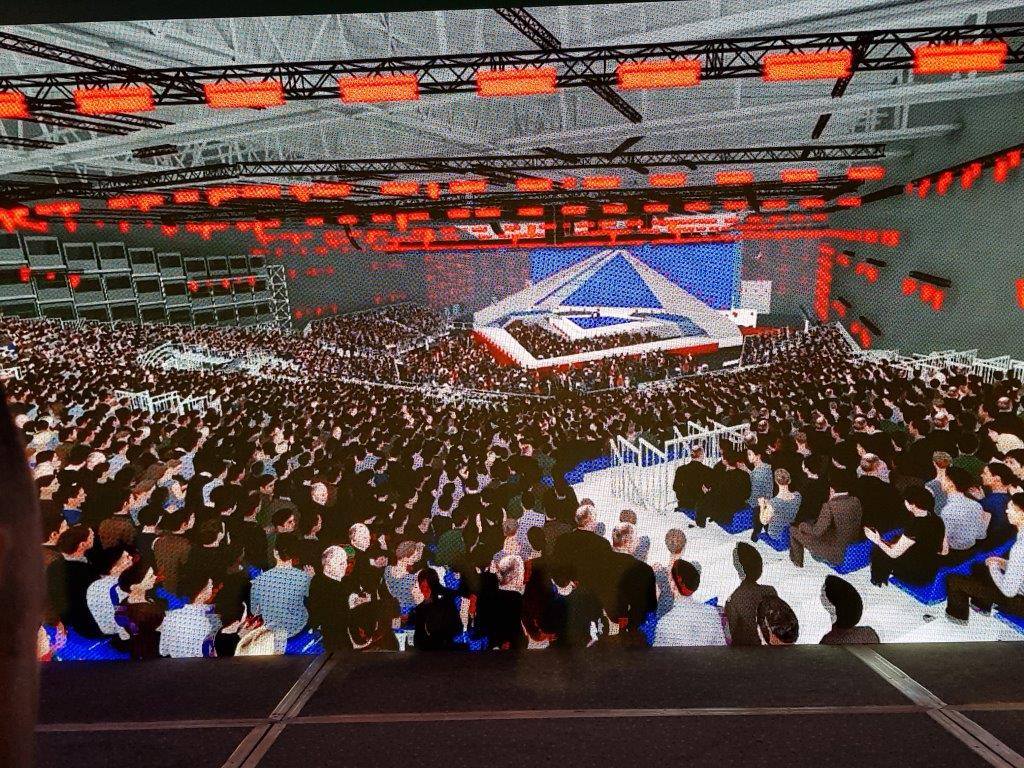
The European Broadcasting Union (EBU) cooperates with the Consumer Federation, Ticket Check. The federation's logo on the website is the sign that this is the official ticket-buying site. The EBU and the KAN recommend buying tickets only from the official website. Further information and updates can be found on the Eurovision.tv website.
Further information and official updates can be found on the website: Eurovision.tv/tickets
How is the Eurovision Song Contest Broadcast from Tel Aviv to 50 countries where the competition is aired and viewed by 200 million people?
KAN, the Israeli Public Broadcasting Corporation transfers the broadcast to the EBU in two different locations in Europe, and from there, the broadcast is distributed to all other countries.
The backup procedure is a complex operation. Each of the three shows are filmed and recorded during the general rehearsals and is used as a backup in parallel to the live broadcast, so that at any point in time during the live broadcast, it is possible to immediately switch to the backup recording of the rehearsals with the touch of a button.
The process of constructing the Eurovision arena takes 54 days and requires 450 trucks carrying containers which are managed and operated by some 300 technicians and expert workers from abroad, who together work in excess of 3,000 shifts during this time. In addition, it takes more than 96 hours to unload the 220 kilometres of cables and fibres that are used by the production teams.
1600 people, work on the production, including about 500 volunteers.
Pavilion 2 contains 7,280 places for the public and 46 commentator booths
Pavilion 1 will accommodate the delegations. There will be 1,500 places for the public and Green Room.
General information for the press: https://eurovision.tv/press
Keep updated on KAN’s Eurovision Twitter account (English): https://twitter.com/kaneurovision?lang=en
Eurovision’s international online platforms:
www.youtube.com/user/eurovision
www.facebook.com/EurovisionSongContest
www.snapchap.com/add/eurovisionSongContest
Eurovision 2019 will be broadcast by KAN, the Israeli Public Broadcasting Corporation, on 14, 16 and 18 May. The Eurovision Song Contest will be held for the 64th time and for the first time in Tel Aviv with the participation of 42 countries under the slogan 'Dare To Dream'.
Photos Silvia G. Golan
- Details
- Written by Delegation of the European Union to the State of Israel
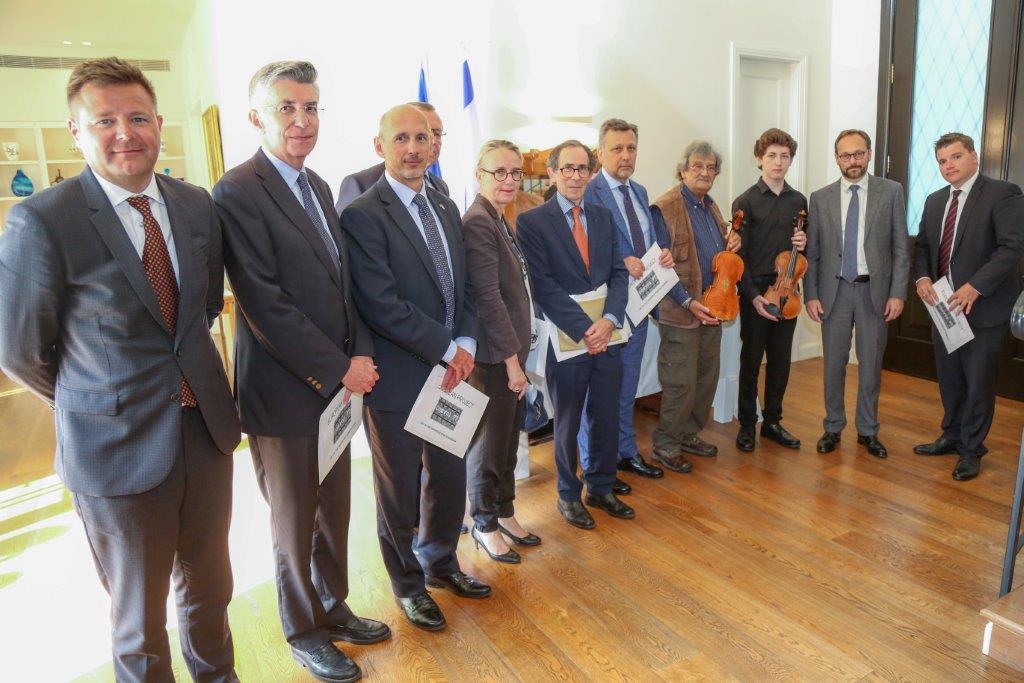
On Monday 29 April 2019, the European Union Delegation to Israel and EU Member States' Ambassadors held a joint Yom Hashoah remembrance event with the Convoi 77 Project for victims of the Holocaust who were deportees from Drancy to Auschwitz. The event was hosted by EU Ambassador to Israel Emanuele Giaufret, at his residence in Herzliya.
Convoi 77 Project, founded and headed by Mr. Georges Mayer, focuses on education and remembrance for the people who were deported from Drancy to Auschwitz on July 31, 1944. 1309 deportees are commemorated with the support of various ministries of education in EU MS and other European countries, by connecting high school students from the towns and villages of the deportees with the victims' stories. Their memory is being revived in a very tangible way, through students' research so that individual lives will be remembered.
The event also included Violins of Hope, a project of a world-renowned violin maker, Amnon Weinstein who has spent the last two decades locating and restoring violins that were played by Jewish musicians in concentration camps and ghettos during the Holocaust.
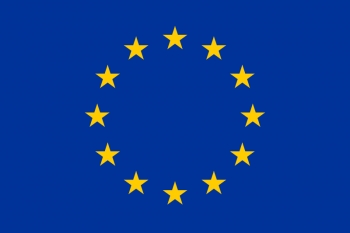
Speaking at the event, Ambassador Emanuele Giaufret, Head of EU Delegation said: "We should never forget that Holocaust remembrance is not an effort unto itself, but is fundamental in the fight against anti-Semitism. In addition to the millions murdered in the Shoah, there were also millions who were nearly murdered, maimed, traumatized, orphaned and humiliated. Information and education are key elements in our fight against Antisemitism. Our Union was built as a reaction to the horrors of the Holocaust and the second world war. Remembering it and fighting Antisemitism is our duty towards the European Jewish citizens and indispensable to protect our common European values. The EU will continue to show resolve and to step up its efforts to promote education, combat bigotry and protect EU Jewish citizens."
Georges Mayer President of Convoi 77 said: “What motivates us is our desire that the history of these 1309 people won’t be lost forever in the maelstrom of the Shoah; the wish to see these lives, violently interrupted, remembered in the form of narrative biographies, photographs, written traces, or, why not? shows or artistic works; concern for the urgency of transmission, at a time when the last witnesses of this period disappear. And the conviction that this period of history should be taught, beyond compassion and duty to remember, through active pedagogy."
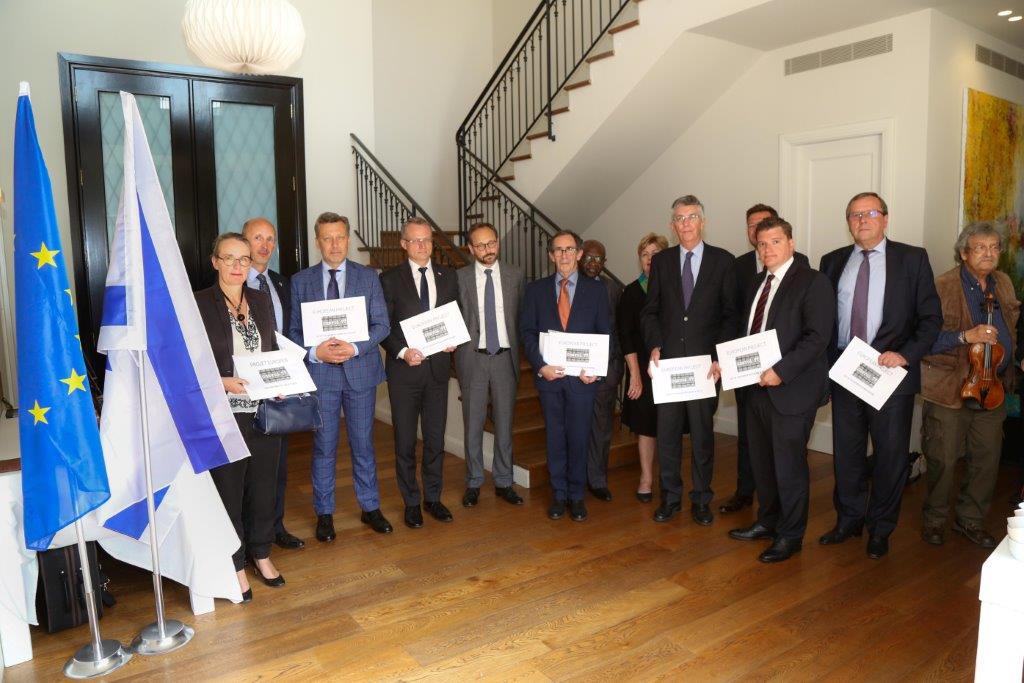
Background
The European Commission has a range of actions to combat Antisemitism, such as monitoring how European legislation combating Antisemitism is implemented and guiding the Member States on how to tackle anti-Semitic hate crime and hate speech.
In 2015, First-Vice President Timmermans and Commissioner Jourová appointed a Commission Coordinator on Combating Antisemitism to liaise with Jewish communities and strengthen the collaboration with international organizations, Member States' authorities, and NGOs.
In May 2016 the European Commission concluded a Code of Conduct with IT companies to take down illegal hate speech and created a High-level expert group to improve recording of hate crime across the EU. See: https://ec.europa.eu/info/policies/justice-and-fundamental-rights/combatting-discrimination/racism-and-xenophobia/countering-illegal-hate-speech-online_en
In January 2017 Commissioner Jourová endorsed the International Holocaust Remembrance Alliance's definition on Antisemitism as a useful tool for educational purposes in countering Antisemitism. The European Union also acquired Permanent International Partner status with the International Holocaust Remembrance Alliance in November 2018.
On 6 December 2018, the European Council unanimously adopted a Declaration on the fight against antisemitism and the development of a common security approach amongst EU member states to better protect Jewish communities and institutions.
Upon request of the European Commission, the Fundamental Rights Agency published, on 10 December 2018, the largest survey ever held among European Jews on their perception and experience of Antisemitism. The survey will serve as a basis for further fact-based policy making to counter anti-Semitism.
The 12th EU – Israel High-Level Seminar on Combating Racism, Xenophobia and Antisemitism took place in Brussels in December 2018.
- Details
- Written by Silvia
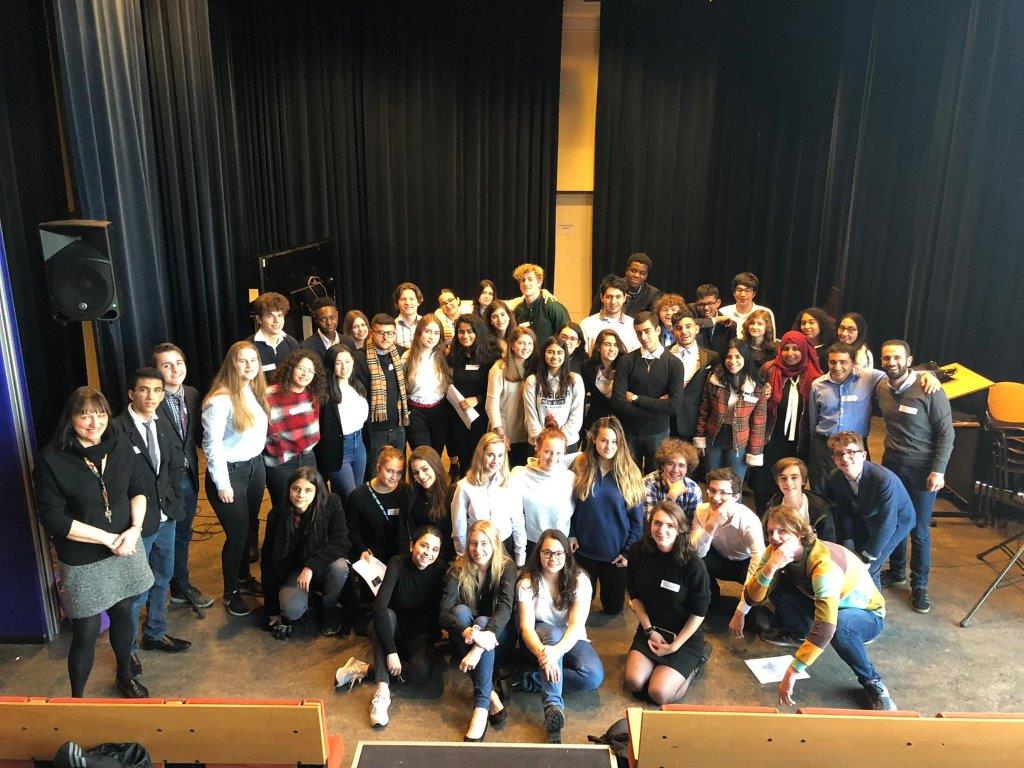
Seven Debate for Peace students recently returned from the Netherlands, where they participated in the Robert Bosch Stiftung supported project “Your Story, My Story: Creating Empathy through Shared Storytelling”. As part of the project, Jewish and Palestinian youth were paired up and learned one another’s family’s stories of having been displaced from their homes, villages and countries. The project was a collaboration between Debate for Peace, and the Netherlands-based WE organization.
After interviewing one another and their families, the students traveled to the Netherlands to present the stories and their experiences with Dutch youth, educators, and activists. The group included Ahmed (from Mazra village), Eliran (Petah Tiqva), Aviv (Netanya), Sharehan (Be’er Mashish), Eman (Iksal), Roni (Kibbutz Mefalsim), Duna (Maker) and Amit (Petah Tiqva). Their ancestral stories included leaving Libya, Morocco, Iraq, and Syria, legal battles with the government, homes destroyed, being shot at, and years living as itinerant refugees.
The delegation first spoke at the International School of Amsterdam, meeting with several groups of high school students. From there they traveled to Rotterdam, where they presented their stories and participated in a full day MUN simulation at the Rotterdam International Secondary School. After visiting Dordrecht, the delegation traveled to the Hague, where they met with the Number Five foundation to learn about their work on social cohesion and bottom-up problem-solving approaches.
After returning to Amsterdam, the delegation met members of the Mo&Moos group, which facilitates a Jewish-Muslim young professionals network in the Netherlands. Mo&Moos hosted a dinner where members of both groups could meet each other. On their final day, the students visited the Anne Frank House, where they went on a guided tour and had a short discussion about the history of the Frank family. They then presented their stories a final time, for staff and guests of the Anne Frank House. After a very moving presentation and Q & A session, the delegation returned to Israel.
It is believed that this is the first project in which Jews and Palestinians told one another’s stories of diaspora. The project was supported by a grant from the Robert Bosch Stiftung, through Ashoka and Changemaker XChange, as a collaboration between the Netherlands-based WE organization, and Debate for Peace, a US Embassy supported member of the Interfaith Encounter Association.









